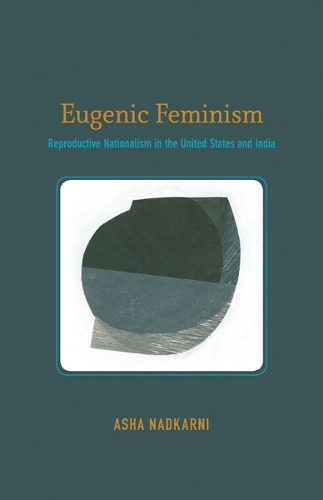
Eugenic Feminism: Reproductive Nationalism in the United States and India
(Paperback)
Publishing Details
Eugenic Feminism: Reproductive Nationalism in the United States and India
By (Author) Asha Nadkarni
University of Minnesota Press
University of Minnesota Press
1st July 2014
United States
Classifications
General
Non Fiction
Feminism and feminist theory
Gender studies: women and girls
305.420973
Physical Properties
Paperback
280
Width 140mm, Height 216mm, Spine 38mm
Description
Asha Nadkarni contends that whenever feminists lay claim to citizenship based on women's biological ability to "reproduce the nation" they are participating in a eugenic project--sanctioning reproduction by some and prohibiting it by others. Employing a wide range of sources from the United States and India, Nadkarni shows how the exclusionary impulse of eugenics is embedded within the terms of nationalist feminism.
Nadkarni reveals connections between U.S. and Indian nationalist feminisms from the late nineteenth century through the 1970s, demonstrating that both call for feminist citizenship centered on the reproductive body as the origin of the nation. She juxtaposes U.S. and Indian feminists (and antifeminists) in provocative and productive ways: Charlotte Perkins Gilman's utopian novels regard eugenic reproduction as a vital form of national production; Sarojini Naidu's political speeches and poetry posit liberated Indian women as active agents of a nationalist and feminist modernity predating that of the West; and Katherine Mayo's 1927 Mother India warns white U.S. women that Indian reproduction is a "world menace." In addition, Nadkarni traces the refashioning of the icon "Mother India," first in Mehboob Khan's 1957 film "Mother India "and Kamala Markandaya's 1954 novel "Nectar in a Sieve," and later in Indira Gandhi's self-fashioning as Mother India during the Emergency from 1975 to 1977.
By uncovering an understudied history of feminist interactivity between the United States and India, "Eugenic Feminism "brings new depth both to our understanding of the complicated relationship between the two nations and to contemporary feminism.
Reviews
"Explicating complex theories in accessible ways, Asha Nadkarni explores the link between feminism and nationalism through the lens of womens reproduction. Eugenic Feminism adds to the debates over continued feminist investments in maternalist nationalism and in population control that negatively effect the women most marginal to the nation." Monisha Das Gupta, author of Unruly Immigrants: Rights, Activism, and Transnational South Asian Politics in the United States
Author Bio
Asha Nadkarni is assistant professor of English at the University of Massachusetts Amherst.
